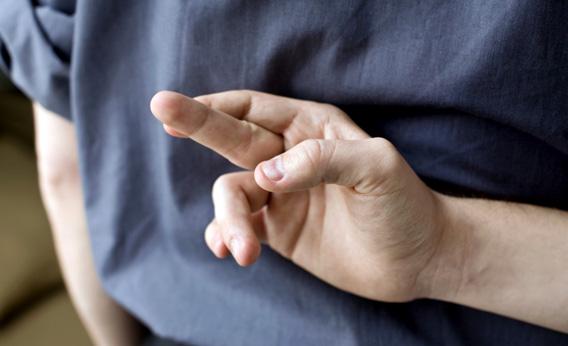Can society survive if computers can tell fact from fib?
By Brian David Johnson|Posted Tuesday, Feb. 26, 2013, at 8:45 AM
What if computers could tell when we are lying?Photo by Steve Lovegrove/iStockphoto/Thinkstock
This article arises from Future Tense, a partnership of Slate, the New America Foundation, and Arizona State University. On Feb. 28-March 2, Future Tense will be taking part in Emerge, an annual conference on ASU’s Tempe campus about what the future holds for humans. This year’s theme: the future of truth. Visit the Emerge website to learn more and to get your ticket.
Here’s something I bet we all believe: Lying is bad. Telling the truth is good. It’s what our parents told us, right up there with “eat your vegetables,” “brush your teeth,” and “make sure you unplug the soldering iron.” (What? I was raised by engineers). But there’s something else none of us can argue: We are all liars. According to a 2011 survey of Americans, we humans lie about 1.65 times a day. (Men lie a little more than woman, 1.93 lies to 1.39 lies a day.)
Perhaps this is why people got really excited in 2007 when Jeff Hancock, a communications professor at Cornell University, starting talking about how we could use computers and algorithms to help detect lies. His research pulled from a study he had done with two other professors, Catalina Toma and Nicole Ellison, about how people lie in online dating profiles. It turned out that nine out of 10 people fibbed when describing themselves to prospective mates. This fact may not be so surprising if we are honest with ourselves about our own dating lives. But Hancock went one step further. He began to develop a computer program that could detect the lies that people were telling online.
continue reading